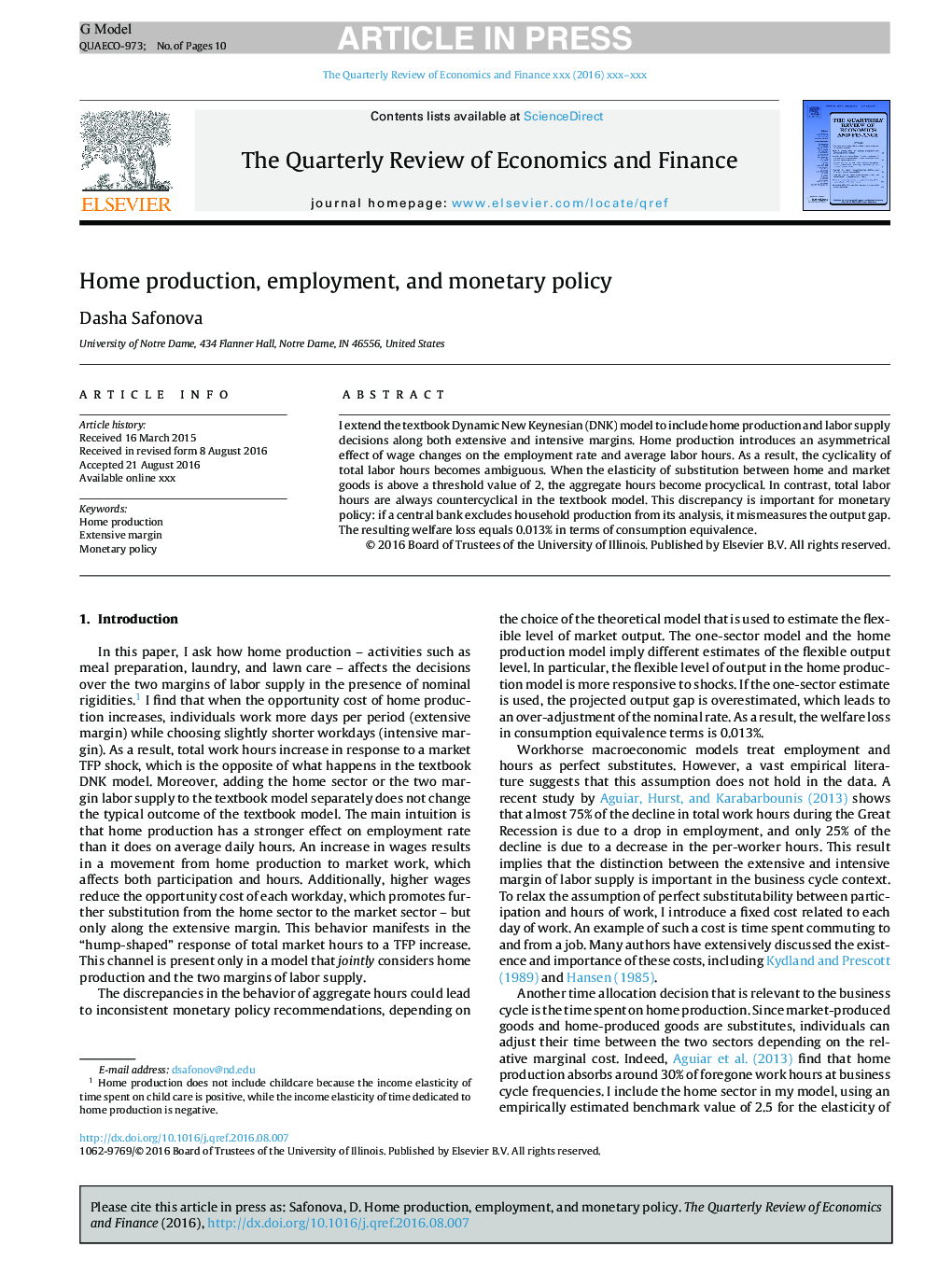| Article ID | Journal | Published Year | Pages | File Type |
|---|---|---|---|---|
| 5103629 | The Quarterly Review of Economics and Finance | 2017 | 10 Pages |
Abstract
I extend the textbook Dynamic New Keynesian (DNK) model to include home production and labor supply decisions along both extensive and intensive margins. Home production introduces an asymmetrical effect of wage changes on the employment rate and average labor hours. As a result, the cyclicality of total labor hours becomes ambiguous. When the elasticity of substitution between home and market goods is above a threshold value of 2, the aggregate hours become procyclical. In contrast, total labor hours are always countercyclical in the textbook model. This discrepancy is important for monetary policy: if a central bank excludes household production from its analysis, it mismeasures the output gap. The resulting welfare loss equals 0.013% in terms of consumption equivalence.
Related Topics
Social Sciences and Humanities
Economics, Econometrics and Finance
Economics and Econometrics
Authors
Dasha Safonova,
